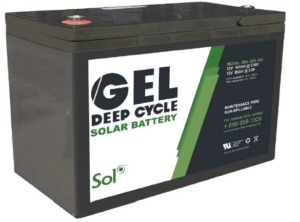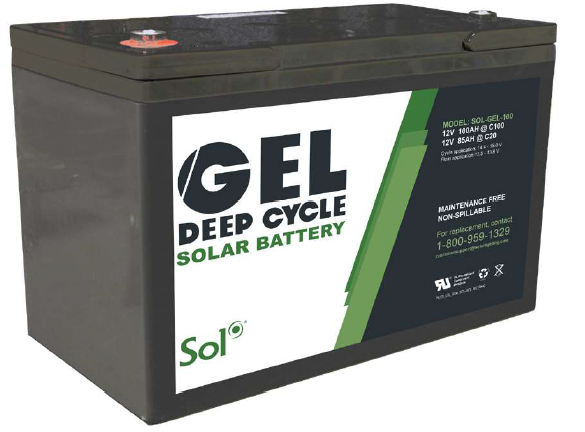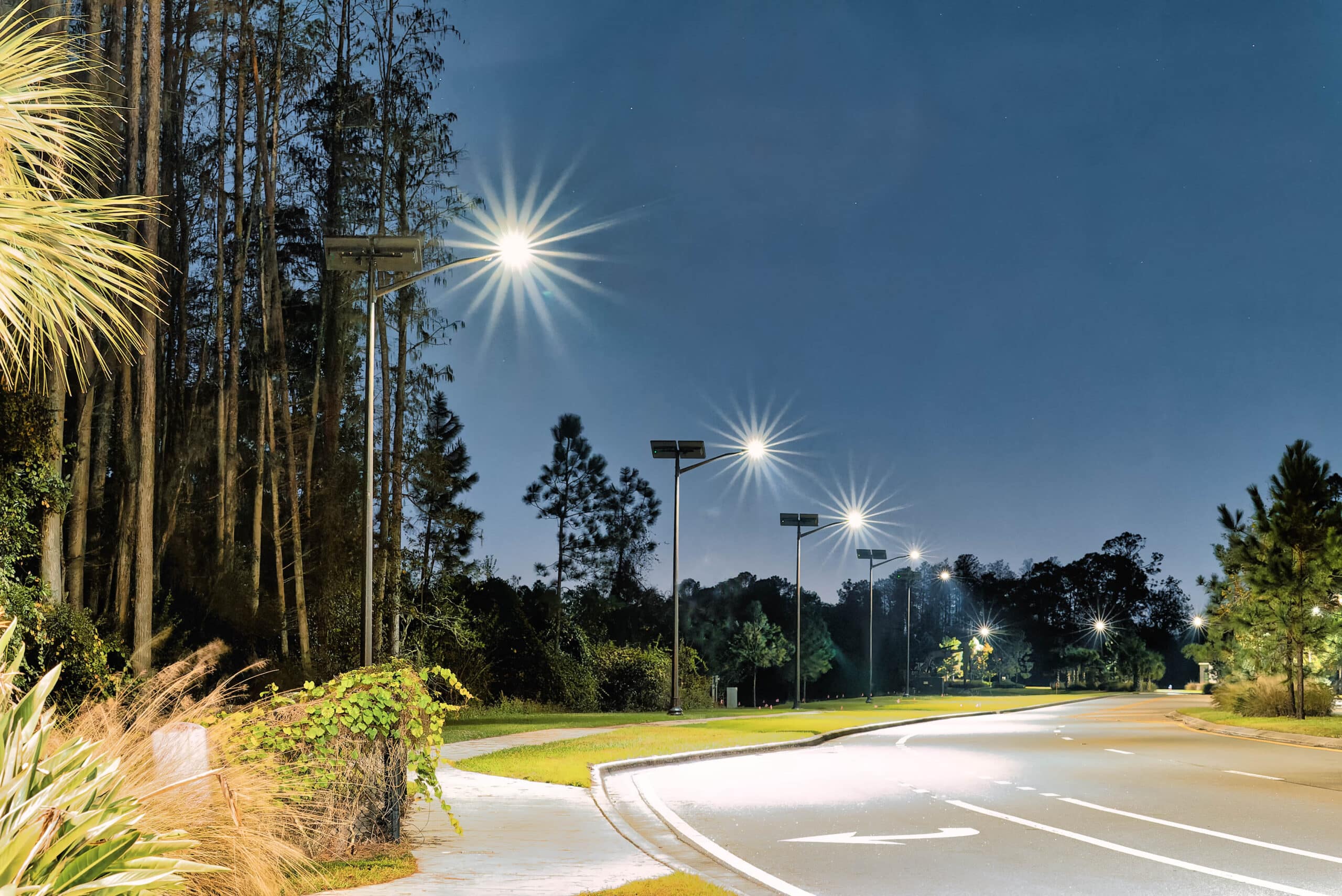Educational 26 April 2023
Solar lighting batteries are a type of rechargeable battery designed to be used in solar-powered lights. They are an essential part of the solar lighting system, as they store the energy produced by the solar panel and provide power to the lights when needed.
Solar lighting batteries are usually lithium-ion or lead-acid batteries, and they come in various shapes and sizes. Here, we will discuss how solar lighting batteries work and their multiple uses.

Solar batteries are an efficient way to store energy from the sun and use it when needed. They convert sunlight into electricity, which is then stored in the battery for later use. This process is known as solar photovoltaic (PV) technology.
Four battery types can pair with solar lighting systems:
Let’s take a closer look at each type of solar battery, including their benefits and use cases.
When it comes to energy storage, lithium-ion batteries are relatively new. However, they are becoming increasingly used for solar energy storage after being used in electric vehicles. Lithium-ion batteries are suitable for residential solar installations because they hold more power in a smaller space.
Pros:
Cons:
These batteries have been around since the 19th century and are considered a standard technological device in the solar battery industry. They are particularly useful to use as an emergency backup or for off-grid solar energy systems.
Pros:
Cons:
These batteries are still emerging in the solar energy storage industry. Their name comes from how they operate. Flow batteries comprise a water-based electrolyte liquid, which flows between two tanks inside the battery.
When flow batteries are charged, a chemical reaction occurs inside the battery, allowing energy to be stored and discharged. They must be large, so they are used more frequently in commercial applications than residential ones.
Pros:
Cons:
These are among the least popular types of batteries on this list, but they are still an option. In particular, nickel-cadmium batteries are used in the aircraft industry and for other utility solar energy systems.
Pros:
Cons:

Solar lighting batteries are often the forgotten component of solar lighting systems. Yet, they are essential to ensure the lights remain operational and provide reliable illumination.
Unfortunately, batteries can fail over time due to a variety of reasons. If you notice your lights are not as bright as they should be, or if they stop working, it may be time to replace your solar lighting batteries, especially if they are at or past their estimated lifespan.
We can help you with all your solar lighting and battery questions. Get in touch with us to learn more.

